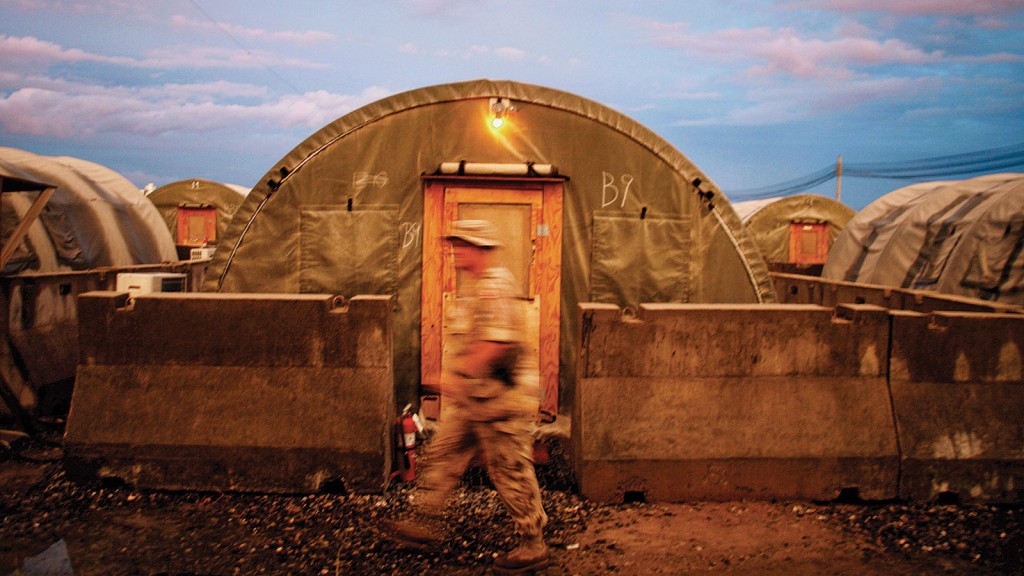Review calls for independent centre to handle military sexual misconduct
But Canada’s top general wants to study the idea first
Robert Dall/CP
Share

It has been 17 long years since the morning I visited the Department of National Defence’s brooding concrete headquarters in Ottawa to interview Gen. Maurice Baril, then chief of defence staff, about stories Maclean’s had published that spring on sexual assault in the Canadian military.
In the same dour building this afternoon, Chief of Defence Staff Tom Lawson held a news conference to respond to uncomfortably similar issues. Reporting last year by our colleagues at L’Actualité reignited concern about sexual misconduct in the Forces, prompting Lawson to ask former Supreme Court of Canada justice Marie Deschamps to conduct a review.
Her unstintingly critical report, released today, puts him to the test. And it’s not clear Lawson, who is about to retire, will pass.
The key recommendation in Deschamps’s report—formally called the “External Review into Sexual Misconduct and Sexual Harrassment in the Canadian Armed Forces”—calls for an autonomous “centre for accountability” to be set up to handle sexual harassment and assault complaints from Canadian Forces members.
It is needed, Deschamps says, because women in uniform are afraid to take this sort of complaint to their superiors. But Lawson accepted that recommendation only “in principle.” In fact, he said complaints sent up the chain of command are being handled very well, although he conceded that some Forces members remain reluctant to go that route.
Lawson didn’t reject Deschamps’s call for an independent body, such as already exists in the U.S., Australian and French military, but he insisted the idea must be studied carefully. “We need to look at what’s legal within our system, what’s expected of us from the government, what the chief of defence staff expects of his chain of command,” Lawson said. “And I think it’s important that we look at all of those factors.”
Cormac MacSweeney spoke with Brigadier-General Kevin Cotton about military sexual misconduct in May 2014 This issue isn’t new. Back in 1998, Forces officials stressed to me how important it was that their National Investigation Service, which was then looking into sexual assault cases that might have been mishandled by regular military police, functioned outside the normal chain of command. As well, Baril made much of his decision at that time to set up a 1-800 hotline so women could make allegations without those in command directly above them finding out.
Yet today’s report makes it clear that brief burst of attention to allowing victims to get around the chain of command when it comes to sexual misconduct didn’t lead to lasting reform. The obvious problems inherent in asking women who have been harassed or assaulted to trust that making a formal complaint won’t backfire on them, in their careers or personal lives, remain unresolved.
On that day in the spring of 1998, Baril seemed to me genuinely hopeful that a turning point had been reached. “What your articles have done for me, from a positive point of view,” he said, “is that I hope some women who have been abused, or who are still being abused, are not going to take this stuff anymore.”
He was reluctant, though, to concede that sexual assault was any bigger a problem in the military than elsewhere in Canadian society. Indeed, the suggestion seemed to strike him as unfair. “There are a lot of good people out there in the Forces who have been hurt,” Baril said. “And how many of the cases are exactly what Maclean’s is reporting?”
Deschamps’s review isn’t nearly as open to that sort of questioning. It’s based on extensive interviews and focus groups with about 700 individuals, mostly men and women serving in the regular Forces or the reserves. It concluded that military life in Canada is rife with “frequent use of swear words and highly degrading expressions that reference women’s bodies sexual jokes, innuendos, discriminatory comments with respect to the abilities of women, and unwelcome sexual touching.”
So deeply ingrained is this sort of behaviour, according to the report, that “non-commissioned officers, both men and women, appear to be generally desensitized to the sexualized culture.” That leaves women in the lower ranks feeling they have no place to turn. “There is also a strong perception that senior [non-commissioned officers] are responsible for imposing a culture where no one speaks up and which functions to deter victims from reporting sexual misconduct,” the report says.
The obvious result: “It is not surprising that an overwhelming number of victims choose not to report an incident at all.”And in the rare case that is reported, the review found little reason to trust the military police to act properly. “While the [review] met with a number of dedicated members of the military police, many were confused about the relevant policies, insensitive to the problem of sexual assault, lacked training on the basic elements of the offence (including the legal concept of consent) and were unaware of the available resources to support victims.”
If the report catalogued failings, Lawson evidently sees mainly strengths—notably including his trust in the chain of command. “We believe we have in place right now a very committed set of social workers, very committed military police, very active justice system, and a chain of command that very much considers it their business to look after their members,” he said at today’s news conference.
Still, Lawson welcomed Deschamps’s report and promised to set in motion concerted action. In that respect, he reminded me of Baril, who said, all those years ago, “Society is asking us to be better, more professional. We’re a very visible national institution.”